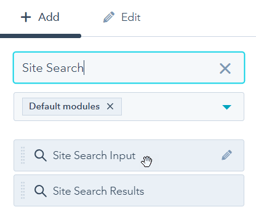Several years earlier, including a website search tool to your site was considered a “should do” example. Sites were intricate labyrinths of numerous pages, links, and code that had an intricate architecture and complicated circulation for the readers. The concept was that having one that browses just your website (and not the whole web) was a great service to use your visitors. They might find what they were searching for rapidly on your website, particularly since online search engine were still in their infancy. The capability to do site search and have it work appropriately on your website was considered a standard capability of any webmaster or developer.

It took weeks to develop a correctly coded and structured website. Another couple of weeks of testing and debugging before the website was ever prepared to go live. Even then, you needed to inspect to ensure that your search questions and databases were correctly form with the best syntax and structure. I can keep in mind investing a week on one specific line of code and how it was triggering an interaction mistake each time a particular word was participated in a search question on among my websites.
Most all webmasters kept there own coding trick because they understood how it worked and how to debug anything that failed with it when set up on a new website. It was a little like keeping state tricks: despite the fact that everybody promoted the “open source” concept of sharing details, you simply did not share some information because it was yours. Obviously, that all ended up being moot when HTML developers chose to release what they understood and/ or sell their knowledge.
Online search engine lastly got wise and understood they might get webmasters to index websites for them by offering self-contained website search tolls that might quickly be included into an individual site. They were even kind enough to offer all of the code needed. When the code was set up, it sent out indexing data back to the search engine so that the SE would have a concept of what the website was about and what content was on the website even before their main spiders ever struck the website. Needless to say, there were a couple of smart developers that used this to their benefit. At that time, a lot of the search results page returned on some online search engine were not totally appropriate searches.
Today online search engine do not leave their indexing to possibility and have really secured indexing algorithms. With the introduction of self-contained website develop packages and blogging software, programming capability requirements are extremely minimal. Still a website search tool is considered a “need to have” by many. One thing I do not understand: Why?
Most websites nowadays have less than 15 pages and consist of vibrant content. Unless you have an ecommerce store where somebody needs to find a particular item, or a website with over 20 pages, it is really simply and workout in website architecture. The website search tools consisted of in most website building packages is more than adequate and work practically effortlessly with your website SQL databases.
